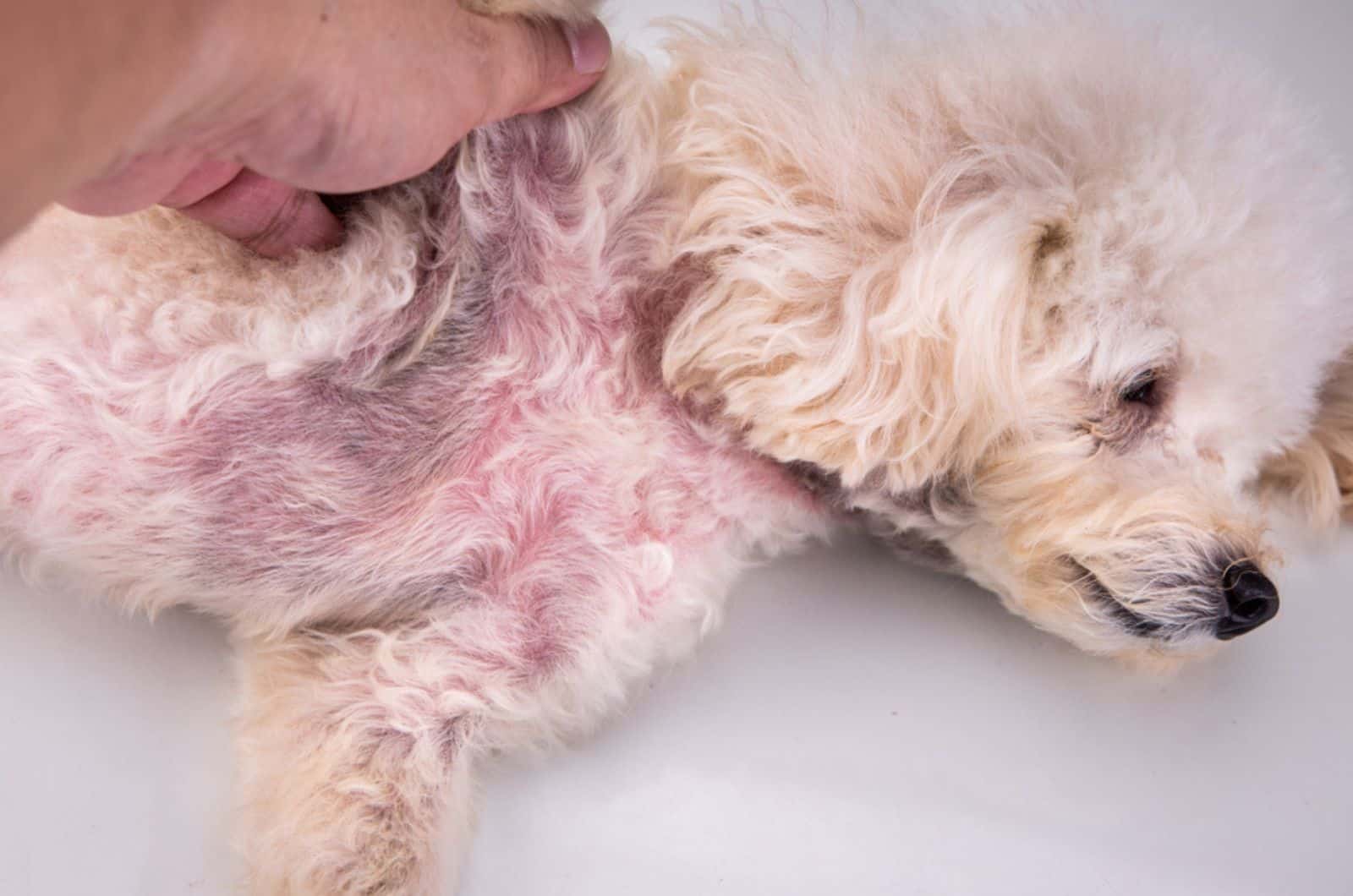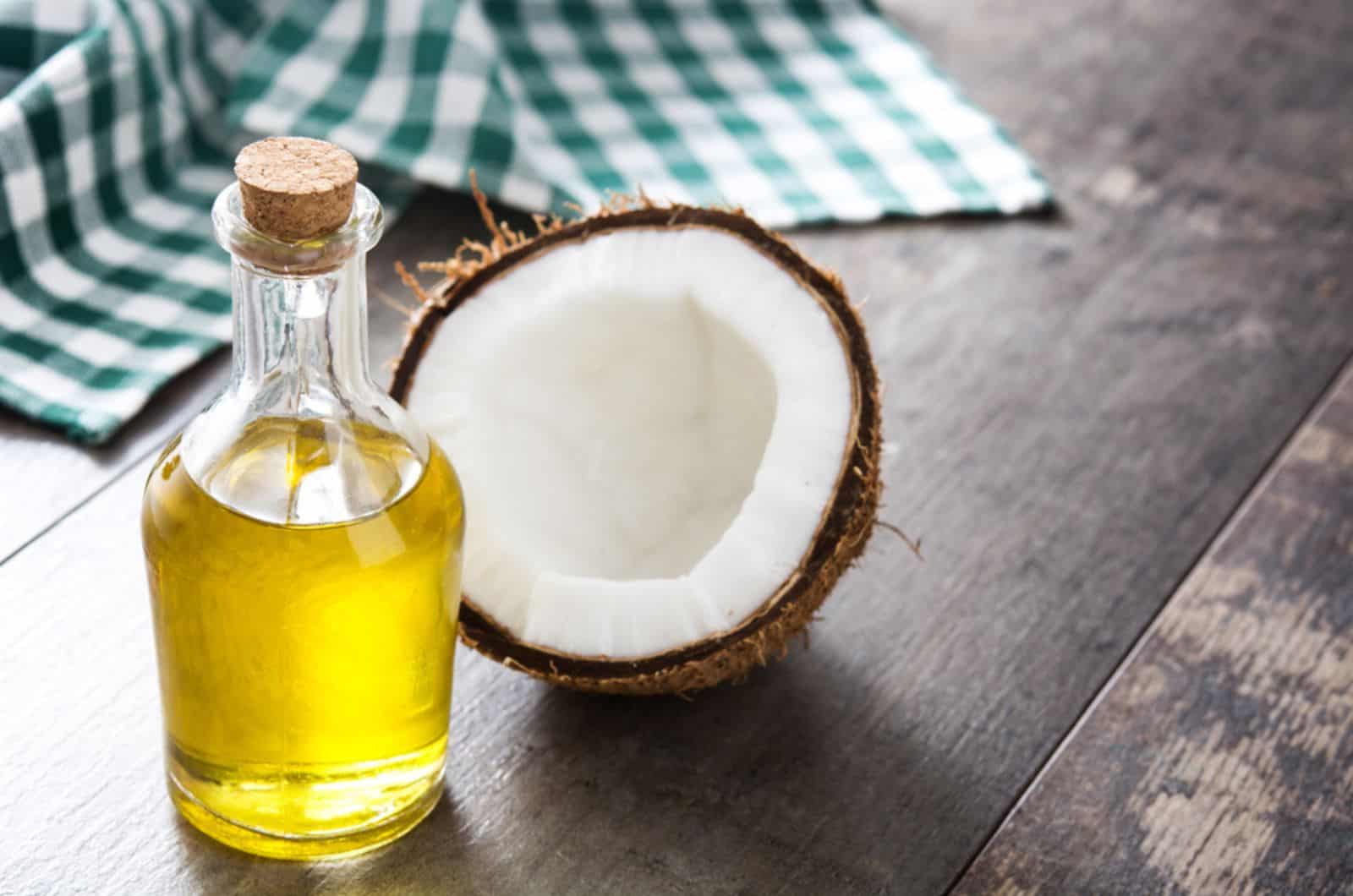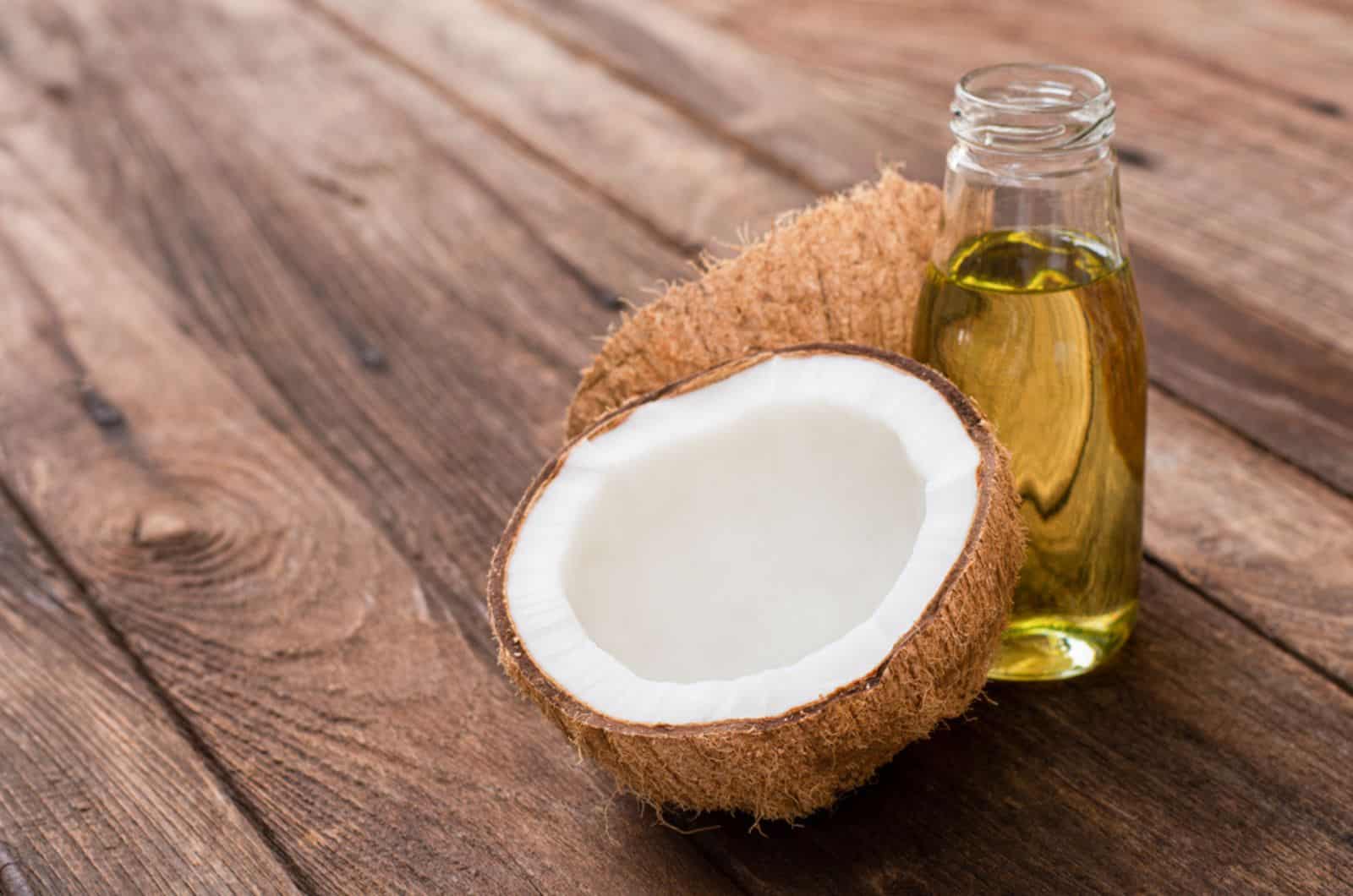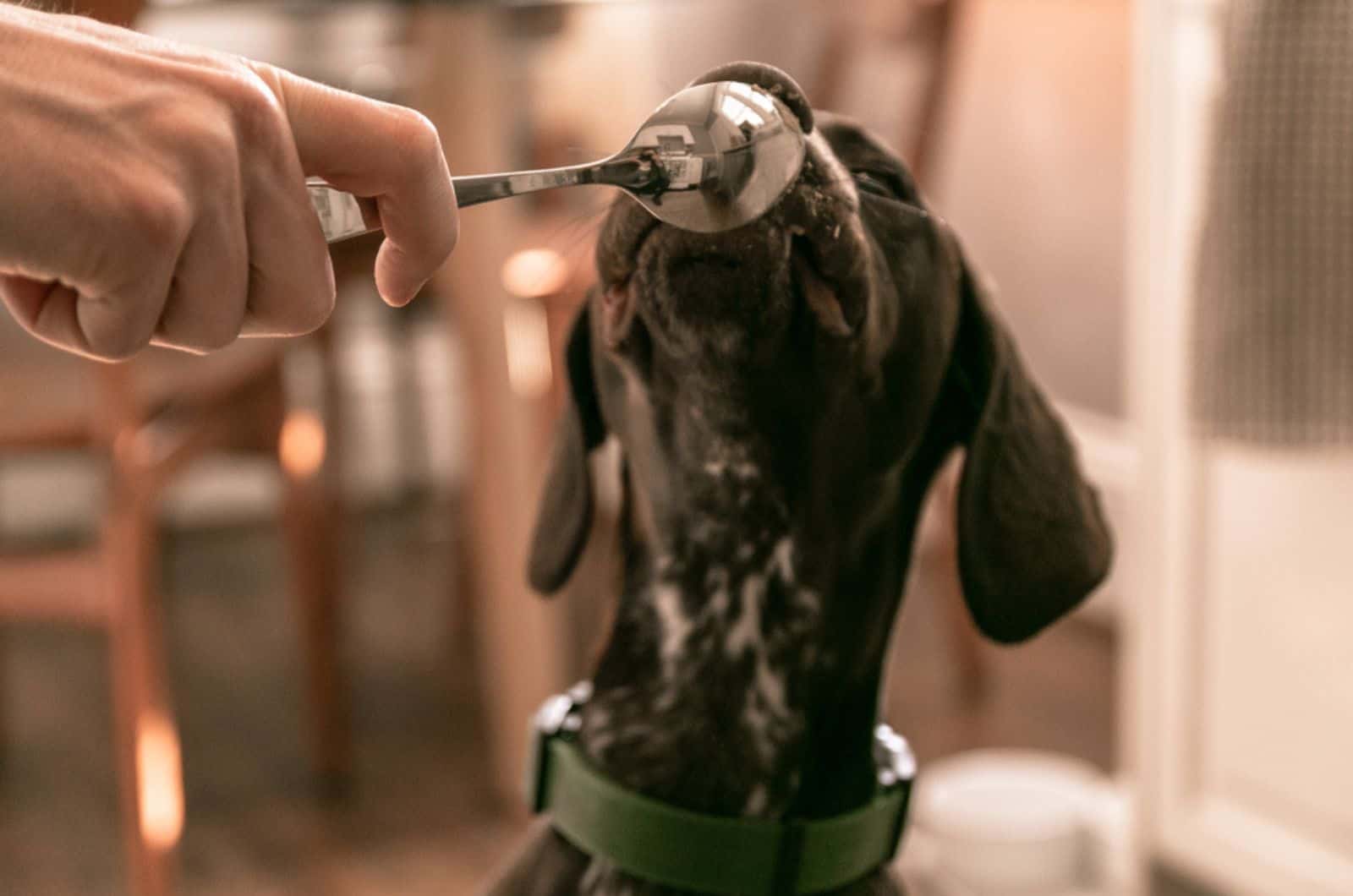One of the healthier alternatives to standard cooking oil for humans has become coconut oil, believed to contain many beneficial properties, but do they apply to dogs too?
It definitely is, but don’t treat it as some sort of superfood. Instead, look at it as a healthier nutritional option that you can get when you can.
Sure, it does help improve immune response and does possess anti-inflammatory properties as well as being less fatty than traditional oils, but it’s not the greatest thing since sliced bread.
You’ll still need to give him a standard protein and fat-filled diet, though it can easily be incorporated into said diet.
Let’s see what sort of benefits it provides to dogs.
What Does Coconut Oil Consist Of?

In non-scientific terms, coconut oil comes from coconuts, the white, meaty stuff to be precise.
In more scientific and nutritional terms, it’s around 90% healthy saturated fats called MCTs (Medium Chain Triglycerides).
These are further separated into various beneficial acids like capric, caprylic and lauric.
As for their specific benefits, capric and caprylic acids help fight off yeast infections and prevent gut inflammation while lauric also helps boost the immune system’s response against harmful viruses and bacteria.
The MCTs themselves are also easy on the gut and can help ease digestion.
Are There Any Other Particular Benefits?

There are. They have benefits in terms of topical application, particularly in soothing skin inflammation and various injuries, much like aloe vera would.
Other than that, the anti-inflammatory properties are known to help soothe throat irritation and ease coughing symptoms.
There’s Always A But…

Like with every other alleged “Superfood”, there are severe problems with the credibility of a lot of these claims.
As of now, there have been no studies that focused on proving these alleged benefits and they’re mostly assumptions based on the effectiveness of the ingredients listed.
However, there’s no guarantee these ingredients have the same property in this particular compound.
This is why I said what I said at the start of the article about not using it to replace any core part of the diet, but to instead treat it as just an additive to an existing diet.
After all, your dog can’t consume enough coconut oil in a healthy amount to reach his daily fat requirement.
While fat might be a bad word in the public eye, every living being needs a certain amount of it ingested daily to provide them with energy.
Another particular point of order is that it clearly lacks a lot of the other beneficial properties that are usually found in dog food or other oils, omega 3 and 6 fatty acids in particular.
These are well known to be crucial for maintaining good skin and fur quality in your canine companion as well as aiding bone and joint health to a lesser degree.
They come with plenty of other benefits that supplement the other ingredients that they’re commonly paired with like improving heart health and boosting the immune system.
Is There Any Point In Using Coconut Oils In My Dog’s Diet At All Then?

It’s not ideal, but it won’t hurt him, so long as you make sure he gets the rest of his daily nutrients in.
As for actual benefits, it is a decent option against yeast infections.
However you should consult with your dog’s vet on whether it’s a viable alternative to antibiotics in case you’re against the use of pharmaceutical medicine.
How Can I Feed Coconut Oil To My Dog?

Do note that you can’t just shovel coconut oil down your dog’s throat and that tolerance to it needs to be built up over time.
Start with smaller doses at first so he can build a tolerance, after which you can increase dosage ever so slightly.
Improper application can lead to an upset stomach and liquid poops, so it’s best to try avoiding any attempts at shortcuts.
In Conclusion
Coconut oil is by no means harmful apart from the occasional diarrhea from overconsumption if your dog’s tolerance to it is low, but other than that it’s fine.
However, it’s not some revolutionary new superfood that can replace any standard diet.
Your dog will still likely be on the same standard fat and protein diet because he does need his daily nutrient quotas fitted.
Sure, you don’t have to be perfect regarding those, but it does need to be an approximation of it, and coconut oil doesn’t contribute much to it.
However, it’s safe for consumption for any dog, so long as you slowly introduce it to his diet and it does have some anti-fungal properties that other natural sources may not have.
Whatever your verdict on this may end up being, I suggest talking to your vet about it before making it to see if it would even benefit your canine companion in any way.
Until next time, pet parents.
READ NEXT: Can Dogs Eat Tuna? Things You Need To Know
